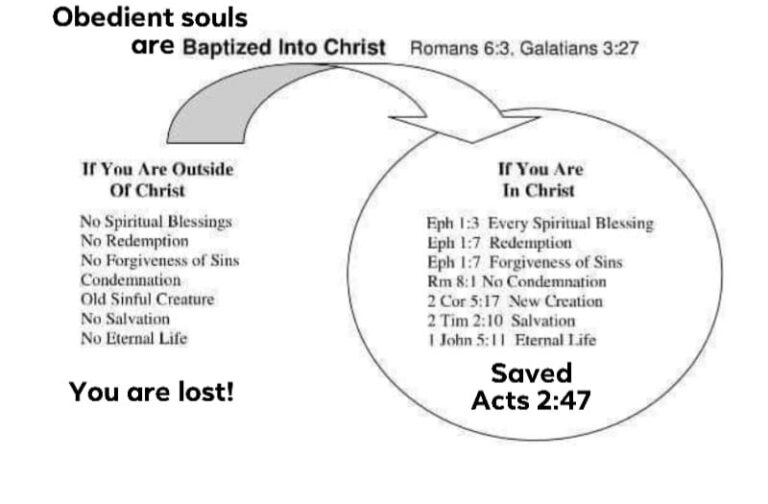As christian citizens, we should think carefully about how we vote on the 4th July 2024. This election covers many issues where important christian principles are at stake. They tend to be issues where biblical standards, particularly New Testament, directly apply. In modern Britain they can be among the most controversial subjects, yet in our view the Bible is perfectly clear about them.
We cannot be exhaustive. There will be other areas of concern where much material is available elsewhere or where there is honest disagreement among christians holding to the Bible as their authority, such as the environment.
WHY SHOULD YOU VOTE?
The State is a means of God’s common grace’. The Bible is very clear that the governing authorities act on God’s behalf to restrain evil and promote what is good (Romans 13 and 1 Peter 2). This benefits all people. not just christians.
As a general rule christians follow Jesus’ command to; “Render therefore unto Caesar the things which are Caesar’s” (Matthew 22:21, KJV). Christians are citizens of heaven (Philippians 3:20) and also of an earthly nation. The christians duty is to obey the governing authorities. The exception is where they forbid what God requires, or require what God forbids (Acts 5:29). It is our earnest prayer that christians will have freedom to share the Gospel and live out the christian life (1 Timothy 2:1-4). In praying “deliver us from evil” (Matthew 6:13) we are praying against persecution of the church as well as personal temptation.
Common grace and the privilege of voting
Romans 13 makes clear that God has ordained the governing authorities in every country whether they are christian or not. Thanks to God’s common grace, there are many non-christians who take the right view on a range of issues including those in the denominations. Nobody’s thinkingis wrong at every point. Politicians who disagree with christians about redefining marriage can still be strongly against assisted suicide or liberalising cannabis laws. Some atheists will strongly defend free speech of us christians. I can testify that there are men and women of integrity in all political parties across the political spectrum.
Like the prophet Daniel, God’s people must encourage leadership which promotes truth and righteousness, such as when he said to King Nebuchadnezzar. “Therefore, O King, be pleased to accept my advice: Renounce your sins by doing what is right, and your wickedness by being kind to the oppressed” (Daniel 4:27).
Unlike Daniel, christians in the UK today get to play a part in electing their leaders. In our democracy we all have the legal right to vote. Billions of people around the world do not enjoy the freedoms we have in the UK. We elect Members of Parliament and so ultimately the Government. We help choose ‘Caesar’. So voting is a privilege and a serious responsibility.
The General Election provides an opportunity for christians to speak out and play their part by voting. Governments can make it easier or harder to live freely as a christian or to share the Gospel. Believers have to make a judgement about how their vote can be used to best effect.
BIBLICAL PRIORITIES
When it comes to matters of public policy, christians have to assess biblical issues on which the Bible is absolutely clear from those on which it is not.
For instance, the Bible is not clear on how to improve access to our GP’s or the most appropriate level of university tuition fees. To decide on these issues involves detailed assessment of the facts and the exercise of judgement based on experience. Many situations we encounter in ordinary life are at this level, and so are many political issues.
But at the other end of the spectrum the Bible is “clear, direct, and decisive” about a whole host of political issues. For example, a vote for abortion or euthanasia is a vote to break the 6th Commandment (Exodus 20:13). These are the kinds of issues that we mainly focus on in this lesson – straightforward matters of right or wrong.
For a large proportion of political issues, making a christian judgement depends on the wise assessment of several biblical principles. This can result in christians arriving at different conclusions, like when the Covid pandemic hit us… brethren choose to obey the government instead of obeying God’s Word. When it comes to paying our taxes, we know for certain that the State has a right to levy taxes (Romans 13:7). But christians who hold to biblical truth can legitimately disagree on the level of individual taxes.
One clear biblical priority is for God’s people to meet together (Hebrews 10:25). During the Covid lockdowns, it was clear that this was not understood by the majority of politicians. Quite apart from any question over whether it was legitimate or necessary, the closure of the churches during the pandemic should have been treated as a far weightier issue than it was and brethren should not of forsaken the assembly especially as Garden centres were open when churches were closed. This displayed a lack of religious literacy that is a recurring problem in our national life, perhaps most clearly seen now with the issue of ‘conversion therapy’. However, since there was such a strong party-political consensus on the matter of lockdown, it is not covered in this lesson.
ISSUES ON THE HORIZON
The new Parliament being elected on the 4th July could vote on laws affecting religious liberty, freedom of speech, transgenderism, abortion, assisted suicide, drugs legalisation and gambling.
These are all issues of concern to christians. Some are ‘conscience votes’, where MPs are free to vote without a party whip, which underlines the importance of finding out what individual election candidates think.
Biblical christians believe that the Gospel is paramount. Salvation is only found in Christ, not in any political programme. Yet followers of Christ are to care about their world, being salt and light in our society. And in order for that to happen, and for evangelism, there has to be freedom for the Gospel. Religious liberty is a crucial issue.
Christians in Britain have enjoyed remarkable freedom for centuries, which was hard won down the years. Many christians elsewhere in the world do not have such freedom and we must pray for them. Our political leaders must do more to combat the persecution of christians abroad.
Yet here in the UK religious liberty is being increasingly challenged. Street preachers have been arrested. Some who profess to be christians have lost their jobs for answering questions about their faith or for taking an ethical stand. Some denominational christians in business have come into conflict with equality laws and faced fines for holding to the belief that marriage is between a man and a woman. Sad to say but we have very few brethren in the Lord’s church who haven’t taken a stand to contend for the faith.
I know that many so called christians are also gravely concerned about legislative proposals that intrude into ordinary family life, evangelism and the running of the local churches. Christians believe that governing authorities are established by God, but at the same time the Government is not responsible for everything. Indeed, it there is to be freedom, it must not be.
It is important to say that society is more than the State. Society is made up of families and many institutions and organisations between the State and the citizen. In the UK, we do not equate society with the State. Government by itself cannot solve all our problems or even come remotely close.
TWO KEY FACTORS IN VOTING:
Candidates and Parties In the ‘first-past-the-post’ system for Westminister elections you vote for a particular candidate. So there are two key factors we all must consider when deciding who to vote for. We must consider both our local candidates and the parties they represent.
It is very important to know what is going on in your parliamentary constituency and to find out who your candidates are. The key to indentifying your candidates is to be sure which constituency you live in. Most constituency boundaries have changed for this election.
A lot may hinge for you on the individual views of your candidate. In some constituencies there will be the option to vote for a candidate who takes the right stance on moral issues.
In casting your vote, brethren are not necessarily endorsing every policy of the party they choose to vote for. You may decide to back a particular political party that most approximates to where you stand. Or you may consider it better to vote for an exceptional candidate who shares your christian views across a range of moral issues, even if they are standing for a party you would naturally support. You may decide the most important consideration is to vote for the candidate who is standing for a party which in your view represents the ‘least-worst’ option. You may think it better to vote for one of the christian political parties if there’s one in your constituency to vote for.
Sadly, in some constituencies, christians may be in what feels like an impossible position. These are decisions which ultimately only you can make. Christians should prayerfully exercise their christian conscience in these matters. At the end of the day, its your choice.
But you cannot make an informed decision without knowing what the political parties and the candidates stand for. Christians should make it their business to find out the policies of each candidate and party. You should ideally find out their positions on key moral issues like, same sex marriages, abortion, suicide, LGBT, drugs, smacking, prostitution and gambling. So speak to your local candidates if you get the opportunity and ask if they are willing to raise your concerns in Parliament if elected. If they say they will, you can hold them to this promise if they are elected. You can also send them a letter, email them or contact them with your concerns on social media. You can usually find the contact details on the website: whocanivotefor.co.uk
Ask God Almighty for the wisdom to make up your mind on this important matter.
I hope this lesson has helped you to decide on the key question, should I vote this Thursday in the General Election on the 4th July.
May God bless you brethren.
This lesson has been brought to you by: Robert H Brown






